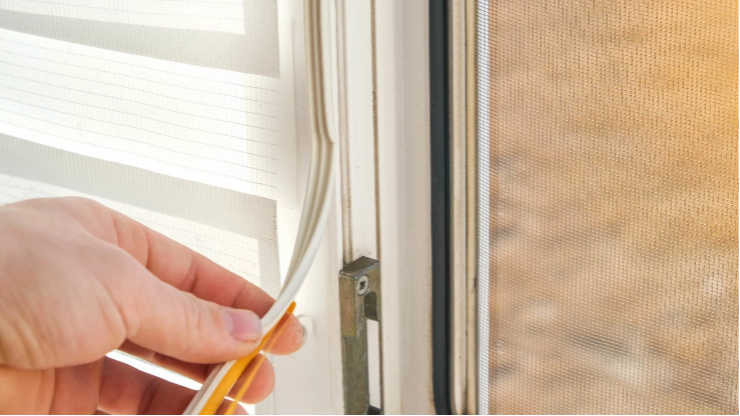
Whether you are a light sleeper seeking a peaceful sanctuary or a professional looking to create a quiet work environment, soundproofing can significantly enhance your space. Get ready to transform your room into a serene oasis as we explore the effectiveness of windowblinds for soundproofing. Here are some practical tips and techniques to ensure maximum noise reduction.
Blinds and Soundproofing
Materials such as honeycomb cells or insulated fabrics in thermal blinds are designed to enhance soundproofing capabilities and provide an additional layer of protection against external noises. By laying flush against a window, blinds contribute to this process by interrupting the path of sound waves and absorbing their energy. The thicker and denser the blind fabric, the more effective they are in dampening sound and reducing its volume before it enters the room.
Blinds for soundproofing are more cost-effective than other methods, such as acoustic panels or double-glazed windows. Additionally, blinds allow you to control natural light and privacy, making them a practical yet stylish choice for your windows without compromising functionality. Whether you’re seeking a quieter home, a peaceful office space, or a better sleep environment, soundproof blinds are an affordable and flexible solution for creating a more tranquil atmosphere.
Choosing the Right Blinds
Different types of blinds are suitable for soundproofing. For example, honeycomb or cellular blinds are a superior choice due to their unique cellular structure, which not only blocks UV rays and light but also absorbs sounds. Thermal blinds are another great option as they use thicker materials, which help absorb and dampen sound waves, reducing their transmission through the window.
Consider thickness, density, and light-blocking capabilities when choosing blinds for soundproofing. Different blind materials will offer varying soundproofing properties that contribute to reducing noise transmission.
Useful Installation and Maintenance Tips

When installing blinds for soundproofing, ensure that your blinds fit tight and snugly to your window to minimise air gaps that can allow sound leakage. This involves taking accurate measurements of your window frame before ordering them online. Following the manufacturer’s instructions and utilising any provided installation hardware will help achieve a secure fit and prevent gaps for a precise blind installation. You can seal gaps around the window frame or use draft blocks and door sweeps to prevent air gaps and minimise sound leakage from doors and windows.
Take care to keep the blinds clean and free from dust, dirt, and debris, as these particles can accumulate on the surface and affect their performance in blocking out sound. Additionally, inspect your blinds periodically for any signs of damage or wear—tears, cracks, or loose parts should be addressed promptly. Regularly maintaining your blinds will help preserve their functionality and soundproofing properties over time, allowing them to continue providing a quieter and more comfortable living environment.
Other Soundproofing Techniques You Can Combine with Blinds
You can enhance the overall effectiveness of your blinds with additional soundproofing accessories. For example, complementing your soundproof blinds with thick blackout curtains or acoustic drapes can reduce noise transmission by preventing sound from entering or leaving the room, creating a more robust soundproofing solution. Alternatively, wall treatments such as acoustic panels or soundproof wallpaper can also help absorb and reduce sound reflections within the room.
Optimising the layout of your room and rearranging furniture can contribute to better sound insulation. You can place furniture like bookshelves, upholstered sofas, or thick rugs along walls to absorb and diffuse sound waves, reducing echo and reverberation. Strategically placing heavy furniture or using room dividers can create barriers that block and redirect sound, minimising its transmission to other areas of the room or adjacent rooms.
Enjoy the Peace and Quiet of a Soundproofed Room
If you’re looking for an affordable and easy-to-install solution for noise insulation, window blinds can be a valuable addition to any room for creating a more peaceful environment. In addition to assisting with soundproofing, they provide a range of practical benefits, including light control, privacy, and temperature regulation.
Experience the benefits of good quality blinds and enhance the functionality and aesthetics of your living space with NZ Blinds – New Zealand’s leading online blinds store. We offer competitive prices and easy online ordering, making the buying process hassle-free. Explore our wide range of fabric and colour choices for versatile blackout blinds, thermal blinds, and more. Shop our online store now to create a quieter and more serene living environment for yourself and your loved ones!